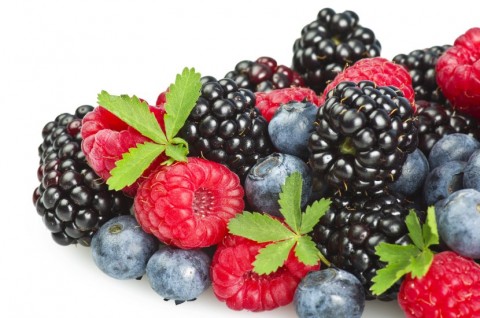DrCarney.com Blog
Dietary Flavonoids Diminish Lung Cancer Risk
Eating fish can increase your risk of getting lung cancer. About 1 in 15 men and 1 in 17 women may get lung cancer at some point in their lives. These numbers include both smokers and non-smokers, though smokers have a higher risk of developing lung cancer. This year, more than 200,000 persons are expected to be diagnosed with lung cancer in the United States, and over 150,000 people will die from the disease. Lung cancer is the leading cause of cancer-related deaths in both men and women, killing more people than colon, breast, and prostate cancers combined. The more animal protein (like fish) in the diet, the higher the risk for cancer, according to PhD nutritional biochemists from Cornell University.
Fortunately for all of us, many measures can be adopted to cut down our chances of having lung cancer. Studies have shown that eating certain types of foods can help boost our defenses against lung cancer and potentially save thousands of lives cut short by this horrific disease annually. Some of these foods include apples, carrots, onions, peaches, papaya, cruciferous vegetables, grape fruits, and soy foods. Notice something all of these foods have in common? They all contain flavonoids, which are not found in meat, fish, seafood, dairy, nor eggs. Fish does not contain the flavonoids that protect against cancer.
Flavonoids are polyphenolic compounds that are present only in foods of plant origin. They are strong antioxidants that are capable of eliminating destructive free radicals involved in cell mutation, DNA damage, and tumor promotion. In addition, scientists believe that flavonoids, such as quercetin and naringin, help to prevent lung cancer by inhibiting certain enzymes that activates chemical carcinogens involved in the processes that transform healthy cells in the lungs and respiratory tract into cancerous cells and tumors. By inhibiting the bioactivation of these chemical carcinogens, flavonoid-rich foods can help protect individuals against lung cancer. Because only plants contain flavanoids, only plant-derived foods can turn off cancer genes. Eggs, fish, and other animal products turn ON cancer genes. Cancer initiation is especially enhanced by eating processed meats like bacon and sausage, which the World Health Organization characterizes as Class 1 carcinogens. (Class 1 means: we know scientifically that this promotes cancer!)
Experts recommend avoidance of dairy, eggs, oil and the flesh of fish and animals; instead choose plant-based healthy eating as part of every cancer prevention strategy. Individuals can increase their odds of beating lung cancer by incorporating foods high in flavonoids into their vegan diets. Avoiding yogurt, keifer, and smoking protects us against cancer. Adding plenty of flavonoid-rich whole plant foods to our menus can help reduce our susceptibility to lung cancer.
Additional Information:
(1) Key Statistics for Lung Cancer
(2) Dietary Flavonoids and Risk of Lung Cancer and Other Malignant Neoplasms
(3) Intake of Flavonoids and Lung Cancer
Scroll Down Page to Leave Comments

What Have You Got to Lose?
Fight the Obesity Epidemic! We provide Starch-Smart Support through our Helpful Sharing Community, Discussion Forums, and Blogging Platform.
Preview the "Cancer Prevention & Women's Health" Trailer
Survive and Thrive: Which common (but seemingly unrelated) factors link many health problems together, including cancer and other women's health issues? Is cancer preventable? This DVD shows you which disease risks are worsened by excess estrogen, which you create in your body by choices in foods and beverages. Banish multiple health problems with the Starch-Smart® System.
When you subscribe to the blog, we will send you an e-mail when there are new updates on the site so you wouldn't miss them.




